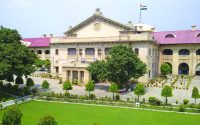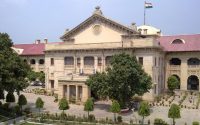$100 Website Offer
Get your personal website + domain for just $100.
Limited Time Offer!
Claim Your Website Now‘No Matter What the Ayodhya Verdict is, Muslims Stand to Lose’: Former Lt General Zameer Uddin Shah
Source: news18.com
New Delhi: Muslims stand to lose regardless of whether the Supreme Court verdict on the Ram Janmabhoomi-Babri Masjid land dispute case is favourable towards the community or not, former Aligarh Muslim University vice-chancellor Lt Gen (retd) Zameer Uddin Shah told News18 on Friday. The Army veteran has also advocated gifting the contested site in Ayodhya to Hindus even if the Muslim side wins the title suit, “for communal harmony and lasting peace”.
The Supreme Court, which had pitched for mediation to settle the decades-old dispute, commenced day-to-day hearings on August 6 after the talks failed. A fresh mediation effort is now on alongside the court proceedings. The SC has said its five-judge Constitution bench, headed by Chief Justice of India Ranjan Gogoi, would wrap up the hearing in the politically sensitive case by October 17.
The bench, also comprising justices SA Bobde, DY Chandrachud, Ashok Bhushan and SA Nazeer, had earlier fixed the deadline of October 18 to conclude the hearing. The judgement is to be pronounced by November 17, the day Gogoi retires.
Speaking to News18, Shah, who served as the Deputy Chief of Army Staff (Personnel & Systems), narrated a ruling by Imam Mohammad who was a disciple of 8th-century Sunni Muslim theologian and jurist Abu Hanifa. “According to Imam, if there is a place where no namaz is being held for a considerable time, that property should be returned back to the person who gave it,” he said. “Now the waqf holder of the land was the ruler of the country, which was Babur then, and now it is the government of India. We should think of just giving it as a sweeping gesture, with the promise that there won’t be a repeat of demolition.”
The Ayodhya dispute is over 2.77 acres of land in the Uttar Pradesh town, which many Hindus believe was the birthplace of Lord Ram. A 16th Century mosque, said to have been built by Mughal Emperor Babur that stood at the spot was, torn down in December 1992 by right-wing activists, triggering communal riots. On September 30, 2010, the Allahabad High Court ruled that the disputed land be split into three parts: the site of the Ram Lalla idol would go to the party representing Ram Lalla Virajman (the installed infant Ram deity), Nirmohi Akhara to get Sita Rasoi and Ram Chabutara, and the Sunni Wakf Board to get the rest. All three parties then appealed against the decision in the Supreme Court.
“Either way, we stand to lose. Whether the verdict is in favour or against us, we don’t gain anyway,” Shah said. “If it’s against us, we have lost it. If it is for us, will we be able to build a mosque at the same place? No. I see it as an impossibility. Just try to build and see what happens.”
The Army veteran is part of a group of Muslim intellectuals, who call themselves, ‘Indian Muslims for Peace’, that has called for an out-of-court settlement in the case.
“We couldn’t prevent the demolition, and you think anybody will allow the mosque to be rebuilt there?” Shah said. “We do not want any sustained riots that happened after the demolition. That’s why I recommended on a pre-condition that there is no repeat of this any further (demolition).”
Elaborating on the pre-condition, he said, “The Places of Worship (Special Provisions) Act, 1991 needs to be given more teeth – as of now, anyone violating it is sent to prison for three months; that is no deterrent at all. Anybody violating should be given lifetime imprisonment.”
The Places of Worship (Special Provisions) Act, 1991 was ratified by Parliament of India. It contains provisions “to prohibit conversion of any place of worship and to provide for the maintenance of the religious character of any place of worship as it existed on the 15th day of August, 1947” and for related matters.
The statement from Indian Muslims for Peace said “it is to be brought to the notice of citizens of the country, that Ayodhya verdict may be pronounced soon; either it will be a clear verdict in favour of Ram Mandir or the land where Babri Masjid stood may be declared under the ownership of UP Sunni Central Waqf Board (UPSCWB)”.
The question that has arisen is, “what may be the Muslims’ reaction who have fought for Babri Masjid with the intention to rebuild it?”
The group has said that, in this situation, “when there is already a makeshift temple with pooja going on round the clock and lakhs of devotees visiting there, will it be possible to build a masjid there?“
The group also comprises eminent Muslim academics, bureaucrats, doctors, engineers, lawyers, journalists, and businessmen.
The statement added, “We would prefer out of court settlement so that both Hindus and Muslims remain happy and no party feels aggrieved. Keeping in view our secular, democratic fabric and centuries-old relations with our Hindu brothers, in our collective wisdom the disputed land owned by Muslims of India may be handed over by Honorable Supreme Court of India to Government of India as a goodwill gesture for attaining communal harmony and lasting peace in the country.”



